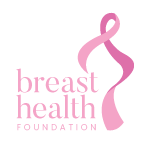Try to replace saturated fat with good fats in your diet. These so-called good fats are unsaturated, either poly-unsaturated or mono-unsaturated.
These are found in vegetable oils such as sunflower, safflower, corn and soya bean oils as well as olive oil, avocados and rapeseed oil (canola oil). The important component of these oils is the omega 6 fatty acid, linoleic acid. The other good fat is fish oil fat. The chemicals in fish oil are eicosapentanoic acid and docosahexanoic acid, which are beneficial to the body. Fish oils tend to lower the triglyceride fats in the body and contain omega 3 fatty acids and are found in high concentration in cold seawater fish such as mackerel and salmon.
Eat fresh fruit and vegetables. These should form a large component of any diet. Besides being a source of fiber (roughage), these foods contain the antioxidant vitamins (vitamins E, C and A). Antioxidants are free radical scavengers in the body. They mop up the toxic free radicals that may play a part in cancer, heart disease, aging and so on.
We should eat about thirty grams of fiber per day. In South Africa, rural people tend to eat more fiber and easily reach this but urban people tend to eat half of this or less. One of the best ways to boost fiber intake is to supplement your daily fiber intake with high quality fiber supplement. Other ways to boost your fiber intake include eating unrefined breads and cereals and plenty of fresh vegetables. A recently completed large study involving more than 40 000 people over a period of ten years in the USA found an inverse relationship between increased fiber intake and decreased heart attacks.
